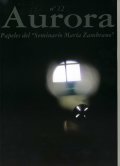Being is conversation: Remains, Weak Thought, and Hermeneutics
Keywords:
Heidegger, Metaphysics, Hermeneutics, Conversation, RortyAbstract
In this essay I try to indicate that Heidegger’s destruction of metaphysics together with the ontological effects of hermeneutics result in “conversation,” that is, in something “weak,” as Rorty explained, “in comparison to scientific inquiry”. While con- temporary philosophers as Nancy, Derrida, and Vattimo have given different answers to Being’s condition after metaphysics, they all agree that it must be a concept which can easily be modified, attuned, and open to further interpretations. But in order to demonstrate that Being is conversation, as I suggest, it is first necessary to outline the remains of Being that Heidegger’s destruction exposed and the ontological effects that interpretation implies. While I have exposed these remains in my book, The Remains of Being, in this essay I try to indicate how “conversation” is a remain. “Conversation” will become not only the most appropriate result of Heidegger’s destruction of metaphysics but also, as Vattimo has emphasized, “what interpretation can generate,” that is, “Being, new senses of experience, new ways for the world to announce itself”.
Downloads
Published
How to Cite
Issue
Section
License
The authors who publish in this journal agree to the following terms:
- Authors retain copyright and grant the journal the right of first publication.
- Texts will be published under a Creative Commons Attribution License that allows others to share the work, provided they include an acknowledgement of the work’s authorship, its initial publication in this journal and the terms of the license.



